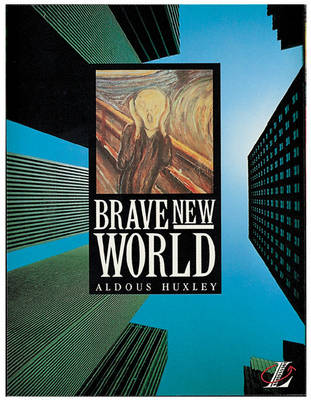Reviewed by clementine on
First, I liked the premise. The world was very interesting and chilling, and the way in which Mustapha Mond rationalizes it makes it even more terrifying - because it almost makes sense. Obviously the world is very well-developed, and full of lots of little details that make it interesting and all the more disturbing! I really enjoyed the socialist naming scheme, and the tidbit of information that there is a very small pool of these names that is shared by everyone.
I think my main issue is with the plot - or rather, the lack of one. The whole book is very expository. Again, I think this is effective when your intent is to be shocking and to present new and thrilling ideas. Building up this clearly terrifying world works well when that's what you want to achieve. And I certainly liked where the ending was taken - again, chilling and abrupt. But I didn't find the plot (or what there was of one) very interesting! I think a lot of this was the excessive dialogue. This book could have benefited from more action and more description and much less expository dialogue! Dialogue cannot carry the story. It is an effective tool, of course, but using it to explain everything (and in great long paragraphs, too - who talks like that?) is lazy and boring. As a result, I couldn't really dive into this book properly. I always felt as though I was just skimming the surface and not fully getting immersed in it, despite the well-constructed world. It just wasn't vivid enough to hold my attention fully.
I did enjoy that unlike the majority of dystopian novels I've read, where the themes seem to be repression, abstinence, and poverty, Brave New World depicts a society that is all about sexual expression and excessive consumption. On the surface, the society may seem happy and almost utopian, which raises questions about the flip side of any utopian society.
At the end of the day, this is definitely required reading for all the dystopian lovers out there! So much of the current stuff builds on the classics, and reading them can enhance understanding and appreciation - so while I didn't love this book, I think it deserves to be read.
Reading updates
- Started reading
- 5 April, 2012: Finished reading
- 5 April, 2012: Reviewed
